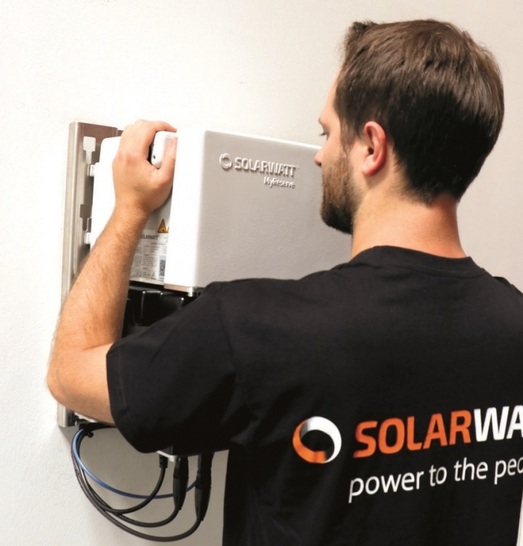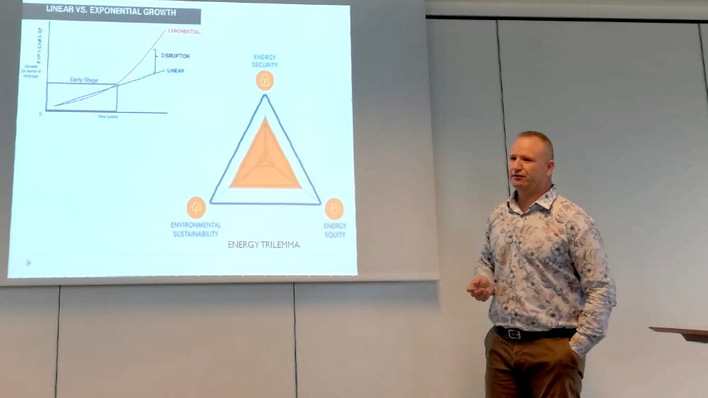Updated technical guidance by the Office of Gas and Electricity Markets (Ofgem) has been released in UK, that clarifies the treatment of existing payments for homes that currently export solar power to the grid and that want to install battery storage and smart meters. The clarification is good news for existing solar homes looking to invest in battery storage alongside a smart meter because it means they will continue to be eligible to keep their ‘deemed’ [estimated] payments for their solar exports. The market had previously been hindered by conflicting guidance.
Move to unlock the retrofit market
Nick Wood, Powervault and Chair of the Solar Trade Association’s (STA) Residential Energy Storage Working Group said: “Government has been telling the industry that they want to see battery storage market take off in the UK, but the confusion around installing battery storage with existing FIT-accredited solar has been a key barrier. It’s very good news that Ofgem has listened and that it has made the right decision to help unlock the retrofit market. This now means that the domestic battery storage industry in the UK can install batteries and smart meters in existing solar homes with confidence that deemed export payments, which are valued by solar home owners, are safe.”
STA could effect change
The clarification on the treatment of battery storage installed alongside existing FIT-accredited solar has taken over a year, during which time the STA fed in specific case studies from its members, and worked alongside other industry bodies to effect change. The nascent UK domestic battery storage market had been impeded by confusion because of two conflicting pieces of official guidance, one of which required solar homes installing smart meters to switch to export metering & therefore lose their deeming. The other official guidance inhibited homes from receiving payment for their metered export where they had installed battery storage (except in specific circumstances such as when a disconnection relay is installed), because of the risk of rewarding power drawn from the grid, not directly from the solar installation. The conflicting guidance and resulting confusion had therefore discouraged solar homeowners from installing battery storage and smart meters.
The news helps to unlock the tremendous potential for storage in the UK’s 900,000 solar homes, which represent low hanging fruit for the smart energy transition.
Retain deemed export payments
While the explanation published is complex and would benefit from greater clarity, from conversations with Ofgem the STA is confident the updated configurations published means that, in practice, where a domestic customer already has FIT-accredited solar and wishes to install battery storage behind a smart meter, they can now retain their deemed export payments provided that the usual requirements to quality for deemed export are met. [i.e. under 30kW, with a bidirectional generation meter for DC-coupled units etc.].
The STA wants to see the smart meter roll-out temporarily decoupled from the requirement to move to metered export while complex regulatory & admin barriers are removed and half hourly settlement is rolled out. Complications can arise for solar homes that install a smart meter with the push to metered export payments, a requirement which in the view of the STA should therefore not yet be enforced.
Call also to remove the high VAT
STA CEO Chris Hewett said; “Credit to Ofgem for listening and for doing the right thing here to get domestic smart homes moving forwards. We now need Government to remove the much higher 20% VAT for retrofit battery storage systems, compared to 5% VAT for new PV and storage system, to really boost this market.
We would like to see this deemed approach retained as an option for existing solar homes that want to install smart metering alone, until we can be confident they will not be caught up in regulatory spaghetti or potentially hidden expense."
Create local markets for flexibility
Recent analysis by Imperial College for Ovo Energy estimates that the full flexibility potential from ‘smart homes’ could save the power system up to £6.9billion per annum. STA members are already able to provide smart home functionality, but regulatory barriers for export metering need to be addressed and markets for local flexibility created. (HCN)
Stay informed, get our free newsletter twice a week. Register here
More useful information:
https://www.pveurope.eu/News/Energy-Storage/STA-UK-Remove-barriers-for-energy-storage
https://www.pveurope.eu/solar-storage/first-solar-municipal-storage-system-uk








